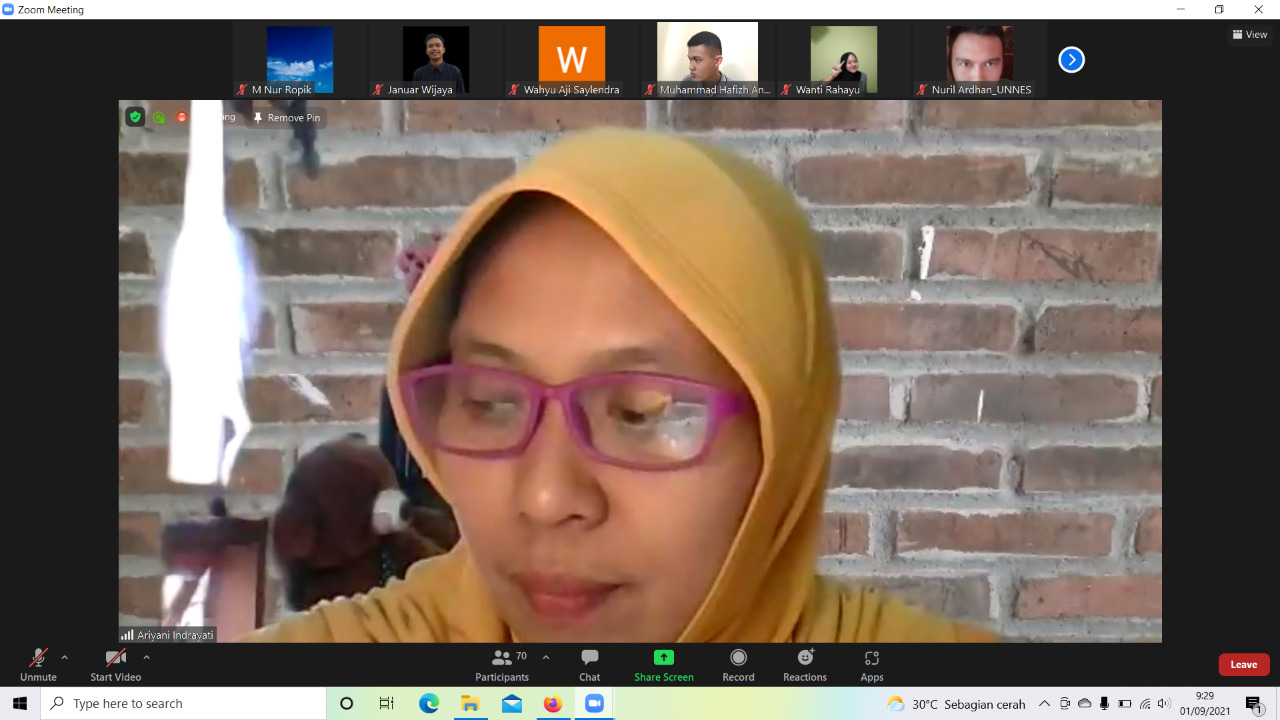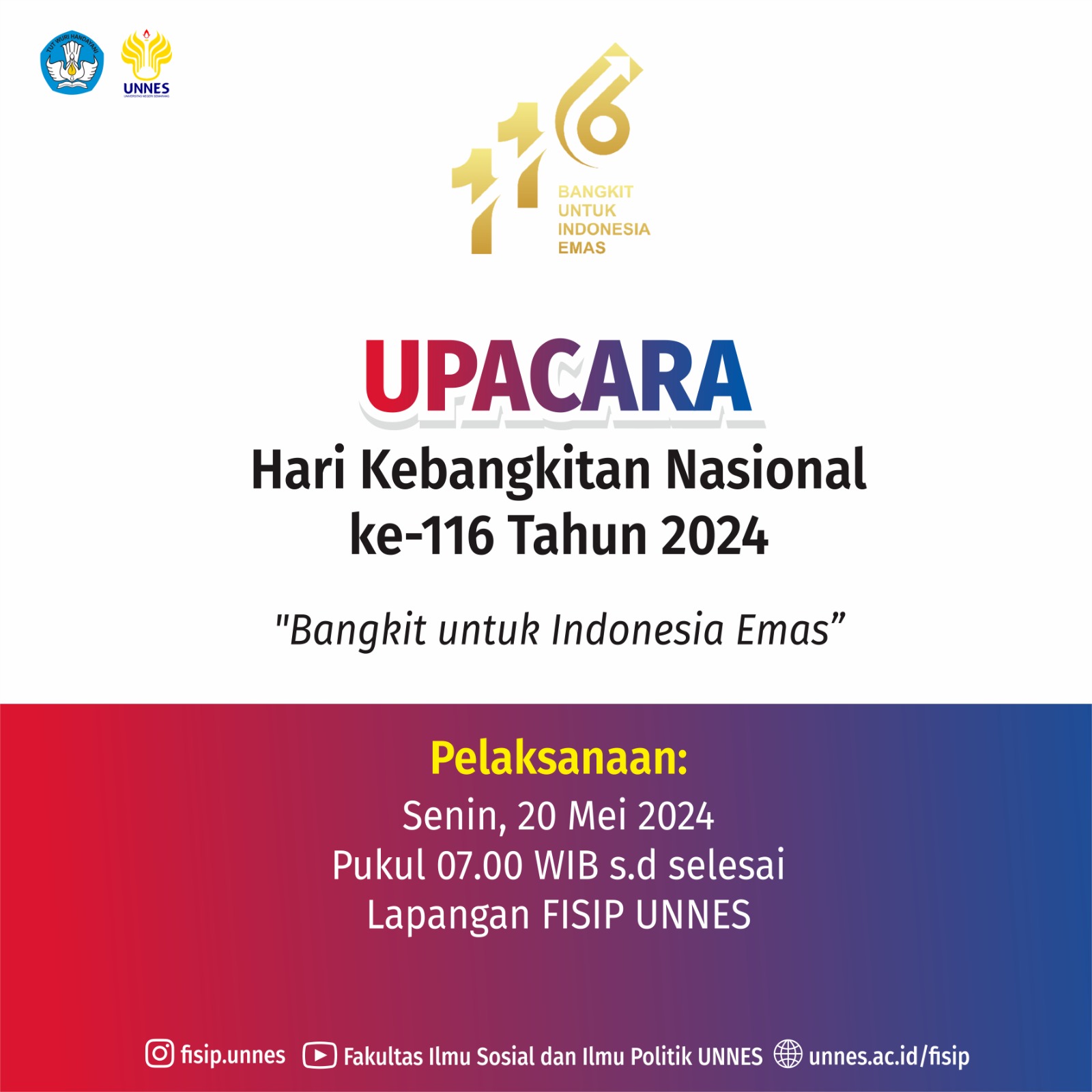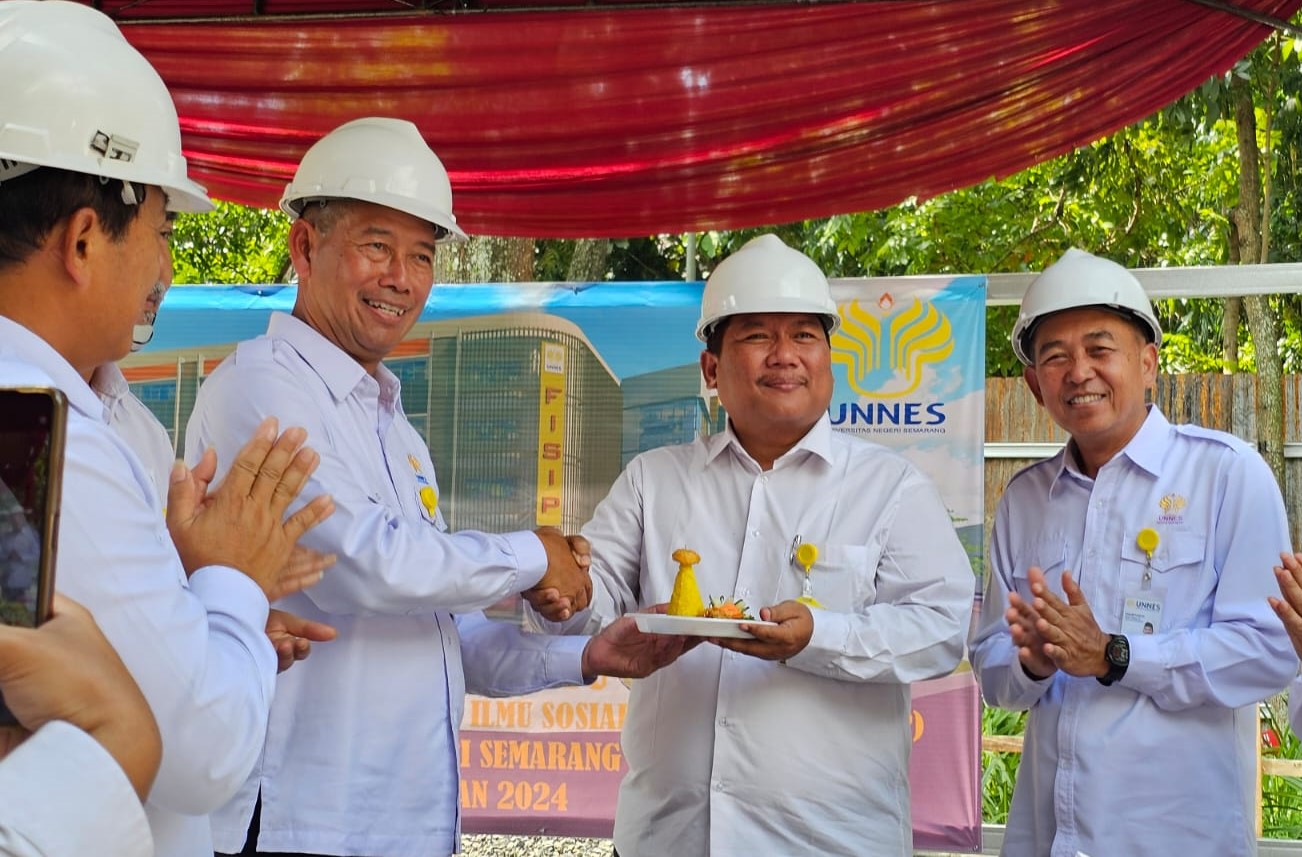Semarang, FIS UNNES. Mahasiswa harus memiliki kemampuan mengklasifikasi permukiman dan menganalisis proses penyediaan permukiman, baik yang mengikuti kaidah legal formal maupun yang tidak. Berdasarkan kemampuan ini, mahasiswa tidak lagi menyamaratakan penyebab permasalahan permukiman di lapangan. Solusi Permasalahan Permukiman Disesuaikan Akar pemasalahannya. Mahasiswa dapat mengajukan saran dan rekomendasi yang tepat untuk melakukan penanganan permasalahan permukiman, baik yang berupa slum (kumuh) maupun squatter (liar) dengan rekomendasi yang tepat.
Penegasan tersebut disampaikan oleh Ariyani Indrayati MSc ketika menyampaikan kuliah Geografi Permukiman dihadapan 32 mahasiswa yang dilaksanakan secara virtual, Rabu 1 September 2021.
Menurut Ariyani, klasifikasi permukiman menggunakan berbagai dasar, diantaranya berdasarkan lokasinya ada pemukiman yang terletak di pegunungan, pantai, dataran,dan lain-lain. Berdasar karakterisriknya pemukiman berorientasi rural-urban dan seterusnya. Penyediaan pemukiman atau settlement provition secara garis besar didasarkan dengan dua pendekatan, yaitu pendekatan konvensional yang mengikuti kaidah dan aturan baku sehingga menghasilkan penyediaan permukiman oleh pemerintah (public), oleh swasta (privat) dan yang ketiga adalah hybrid. Pendekatan kedua adalah pendekatan penyediaan permukiman secara non konvensional menghasilkan yang menghasilkan slump (permukiman kumuh), squatter (permukiman liar) dan hybrid.
Lebih lanjut, calon doktor Geografi UGM tersebut memaparkan tentang permukiman kumuh. Permukiman merupakan tinjauan yang di dasarkan kondisi fisik rumah, sanitasi dan lingkungan yang tidak layak. Permukiman liar merupakan tinjauan permukiman berdasar status legal formal permukiman, apakah memiliki keabsahan yang berupa sertifikat, IMB dan sebagainya. Termasuk dalam tinjauan legal formal adalah status permukiman berdasarkan peruntukan lahan yang bersangkutan dengan rencana tata ruang. Permukiman yang dibangun pada lahan yang tidak dipruntukkan sebagai permukiman, maka dapat juga digolongkan sebagai squatter.
Perkuliahan diakhiri dengan melakukan studi kasus mengenai permukiman kumuh di Kota Semarang (Kasus Bantaran Banjir Kanal Barat) dan permukiman liar di Kota Semarang (kasus permukiman di bantaran rel kereta api Poncol) dan Kasus penjarahan lahan permukiman di kuburan Cina Kedungmundu (Sendangguwo).
Pada bagian ahir, Ariyani menyampaikan bahwa setiap permasalahan permukiman, memerlukan solusi yang berbeda-beda sesuai akar permaalahannya. Melalui perkuliahan tersebut Mahasiswa diharapkan memiliki perubahan sikap yang lebih bijaksana dalam menganalisis permasalahan permukiman. Mahasiswa dapat bersikap bijak setelah memahami aturan dan hukum terkait permukiman, dan dapat terhindar dari permainan oknum yang memanfaatkan celah aturan/hukum permukiman untuk kepentingan pribadi.




